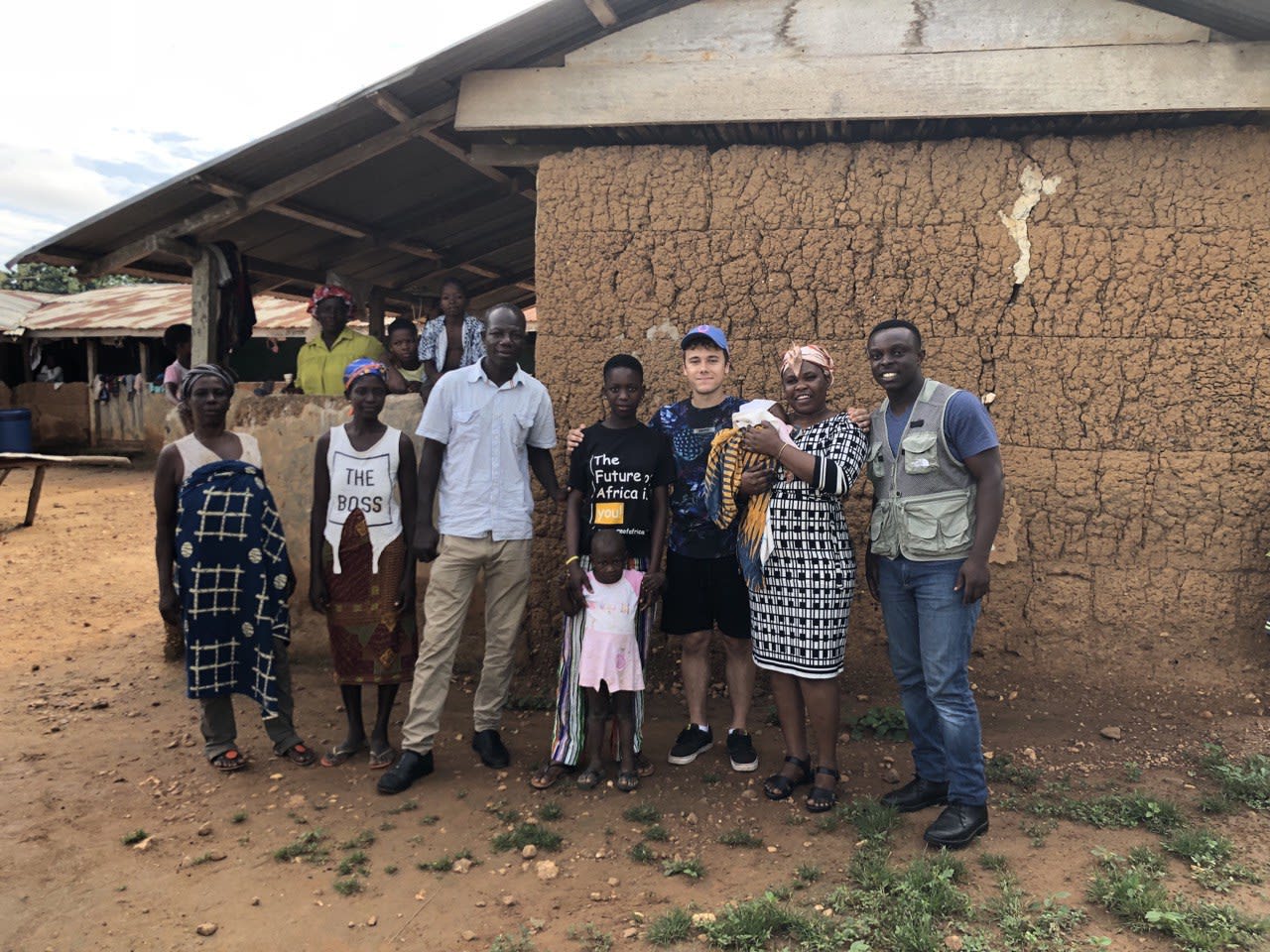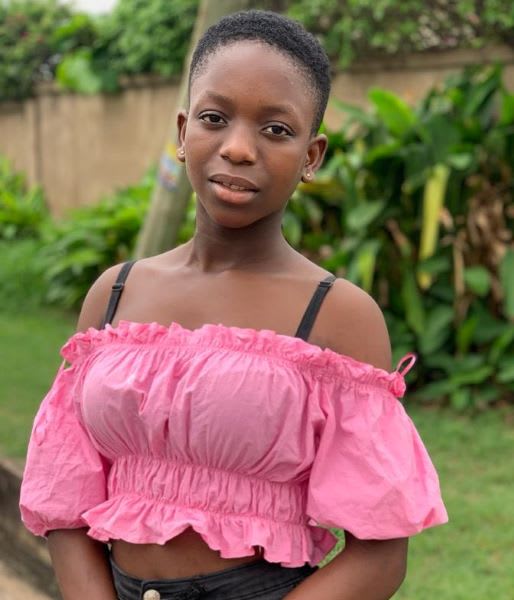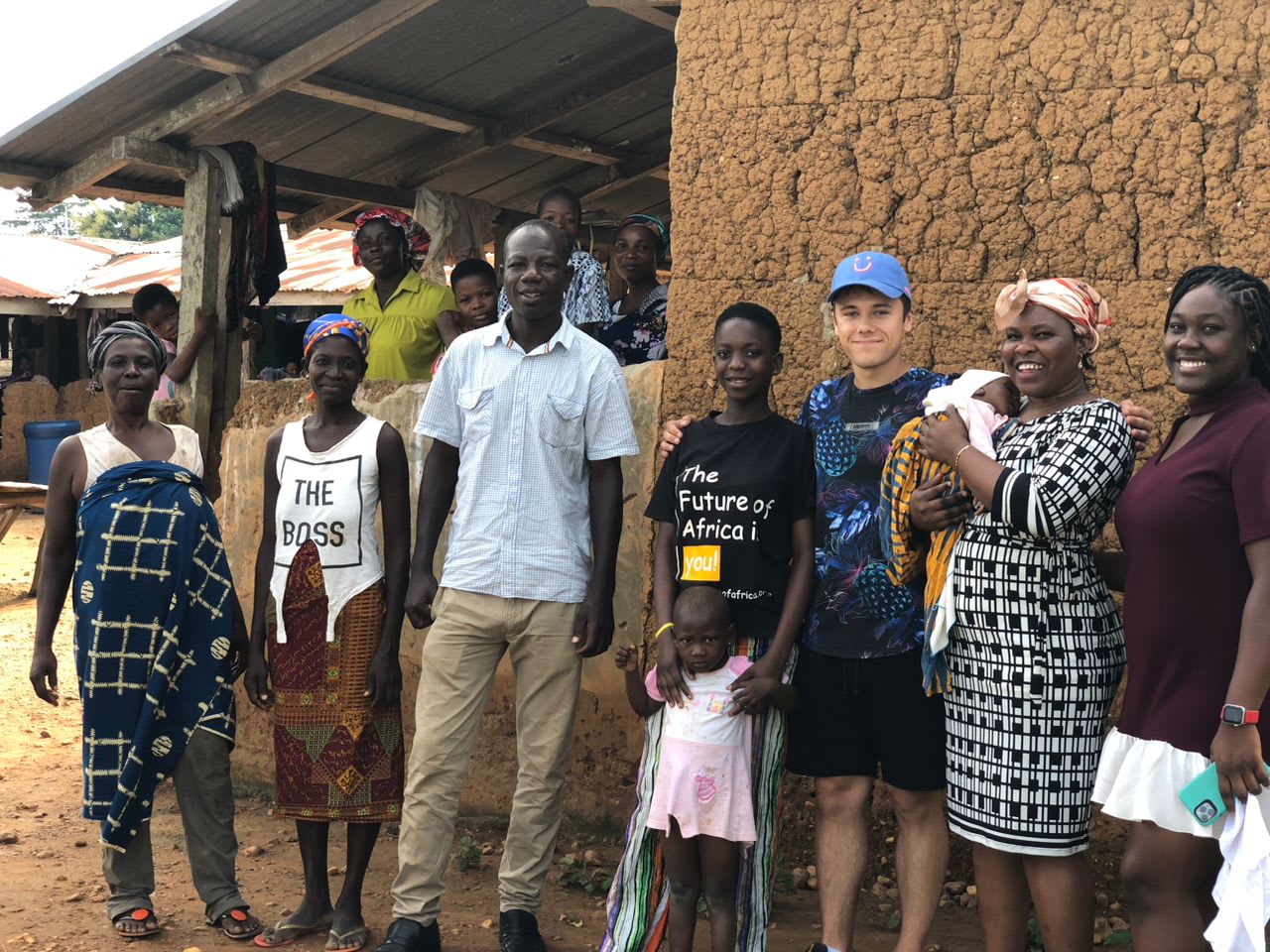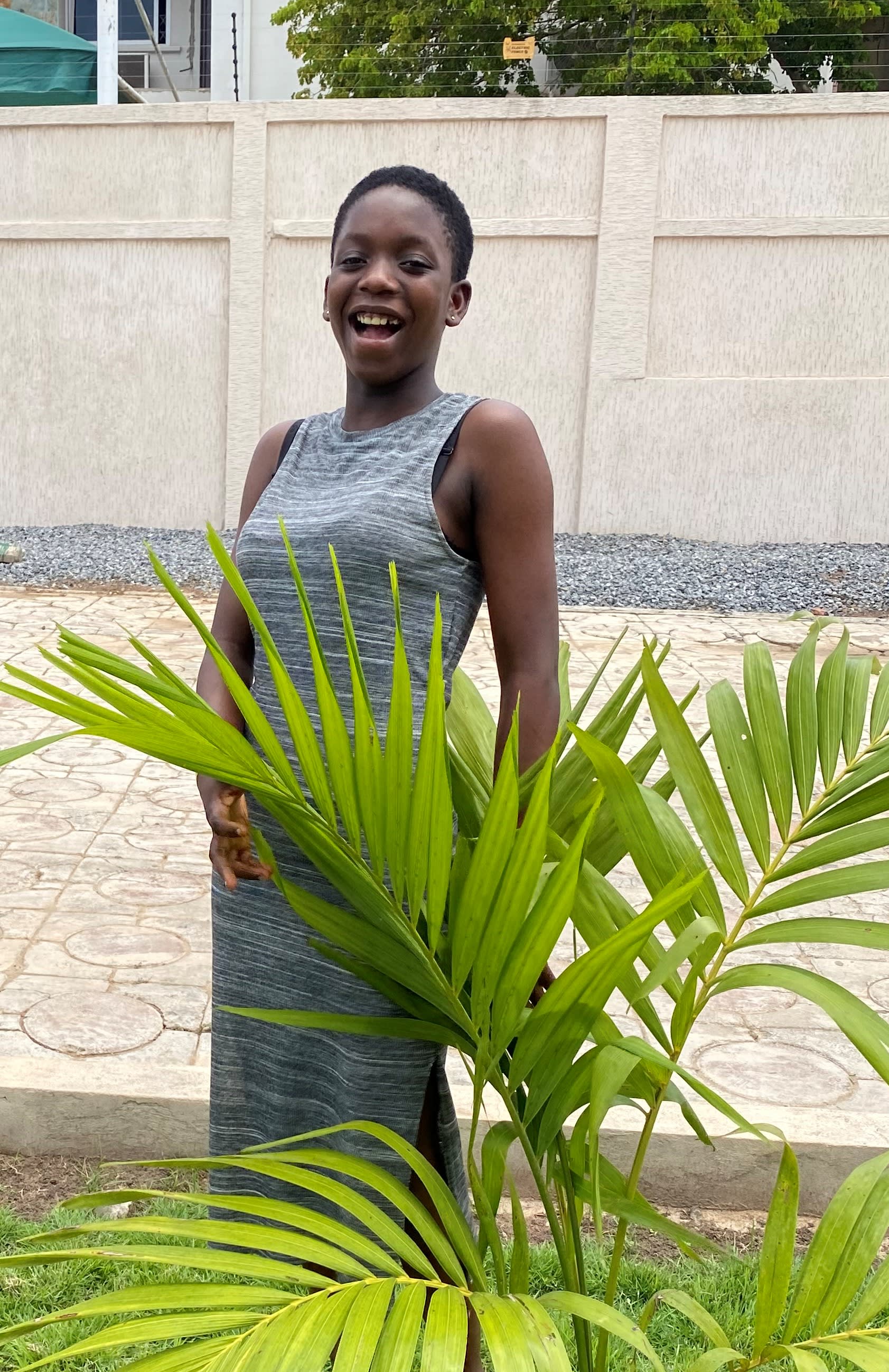
Millicent was abandoned by her friend and left to fend for herself in a busy city that she was unfamiliar with. With no money to return home, and no family and friends to support her, Millicent was forced to live on the streets of Accra. After two months of surviving on the street, Millicent met two representatives of Future of Africa who were eager to rescue her from the street and ensure her well being.

Millicent Korkor was born in Somanya but lived in Topremang, a village in the Ashanti Region, for most of her childhood. Although her parents were separated, Millicent had a large family and she alongside her seven siblings and her mother slept in a small mud hut. Millicent’s mother had to take care of all eight children on her own and thus she relied on Millicent and her older siblings to manage household responsibilities. For instance, every day, Millicent would help her mother cut and sell firewood. Millicent attended a community school which was about 3 miles from her home and the trek to and from school was tiring. However, she always gathered strength to help her mother after school.
Millicent eventually dropped out of school in grade 6 when her father came for her to live with him in Kade. She was 15 years old at the time and her father wanted her to assist him with farmwork. Millicent helped her father grow pepper, garden eggs, and okra on the farm and when the crops were harvested, she went with him to sell the vegetables at the local market. Her father had a son who attended school in the nearby town, but unlike Millicent, he did not work on the farm and continued his studies. Millicent was unhappy working on the farm while her stepbrother had little to no tedious responsibilities.
One day, Millicent’s friend Priscilla, came to visit and told her about opportunities to make money in Koforidua, a city in the Eastern Region. Priscilla had been approached by a sales representative who was looking for young girls to sell various goods in Koforidua. Millicent was intrigued and subsequently planned to leave home without informing her father to follow Priscilla to the city. Priscilla and Millicent took a bus to Koforidua to meet a man who owned two stores, a mattress and a liquor store, and was looking to hire salespeople for the stores.
However, upon arrival, they found the man’s stores locked up; they later learned that the stores were not in operation. The sales representative who took the girls to Koforidua could not take them back to their village, so he gave them some money to board a bus and go back home. At the bus station, Millicent and Priscilla mistakenly boarded a bus that was headed for Accra. Both girls were surprised when the bus reached the final stop because they thought they were going back home.
Millicent had never been to Accra and wanted to take another bus home but didn’t have any money left. Priscilla on the other hand lived in Accra for some time and she had some friends she could stay with, so she advised Millicent to join her. However, within a week, Priscilla had abandoned Millicent. Millicent was homeless and she felt very lost and confused. She was also determined to go back home since she missed her mother, but without any money, Millicent was stuck in Accra with no family or friends supporting her or looking out for her well-being.
Millicent devised a plan to find work, make enough money, and then return to her village. A woman who sold sachet water at the Kantamanto market agreed to let Millicent sell water in traffic for her and then Millicent would earn up to ten cedis ($1) when she returned the proceeds from selling water. Carrying and selling water on busy roads was hectic and Millicent experienced pains in her neck and shoulders whenever she carried a bag of water for more than 4 hours. Millicent was always exhausted at the end of the day and it also didn’t help that her earnings for each day was just enough for two square meals and a shower. It was difficult to save enough money to travel back home and Millicent began to get depressed.

After a month, Millicent quit selling water and she would spend the day idle with new friends she had made. At night she and her friends would sleep in a makeshift tent inside the Kantamanto market. Life became unbearable for Millicent now that she had no means of earning money. She wasn’t eating as much as she usually did, and some days she barely ate at all. She had not had any communication with her mother in a long time and the hope of returning home seemed to diminish every day. Millicent took solace in her freedom, and she enjoyed the autonomy she had living on the streets. However, she knew she could not live like this forever and was worried about her future.
Millicent had spent two months living on the streets of Accra when she encountered Future of Africa. During one of FOA’s Sunday Street Outreach, the team took a stroll in the Kantamanto market to find and engage with new street residents. It was then that Millicent was seen all alone sitting on the steps of a store in the market. She looked ostracized and sad. The team approached her to have a chat with her and she immediately expressed the interest of going home after explaining how she ended up on the street. The FOA team quickly arranged to have Millicent stay at the Norviwo community center till we could contact her mother so they could be reunited. Within two weeks, the team was able to contact her mother through our network in Kade.
-
FOA took me from the street, sent me home to see my mother and then brought me back and gave me a home. I am forever grateful to FOA.



Millicent was excited but also anxious to see her family when the FOA team set off from Accra on the three-hour journey to her home. Millicent’s family was happy and extremely grateful to see her alive and well. The team’s plan was to reunite Millicent with her family to ensure her safety. However, after explaining FOAs' work in supporting former street children to learn a vocational skill, Millicent’s mother pleaded with the team to admit her daughter into our program since there were little to no opportunities in the village to secure a bright future. The FOA team discussed Millicent’s mother’s proposal and agreed to make a special case for Millicent to join the Miahaya program. Millicent agreed to join the program, live at the Norviwo center, and learn hairdressing.
Today, Millicent is training to become an expert at natural hair care at FOA’s vocational training skills partner, Twist & Locs. She loves being trained by her supervisors and learning a vocational skill is giving her hope for a bright future. 'I am happy when I can do the hair well, I also enjoy working with the other staff because they take their time to show me how to take care of customers' hair well.’ Millicent hopes to finish her training and apprenticeship in the next two years and then begin training to become an events planner. Millicent is also delighted to be living with the FOA family and is grateful to have a place she can call home. ‘Madam Dorcas makes me happy; she is always available and is a lovely person to be with. I also enjoy spending time with the FOA staff, but they have to leave at the end of the day. However, Madam Dorcas is always here for me and is like a mother to me.’
[Written by Emmanuel Britwum]
Update on Millicent’s Journey
In November 2023, Millicent made the decision to withdraw from FOA’s program to return home and live with her mother. This choice came after she left the residence unexpectedly, but thanks to our search efforts, we were able to locate her at Kantamanto. During our conversation, Millicent expressed her desire to leave the program and return to her family in the village.
While FOA worked to stay in touch and provide support as she transitioned home, maintaining consistent communication became challenging once she returned to her village. We remain hopeful that the foundation she built with us will continue to guide her, and we send her our best wishes as she navigates this next chapter of her life.